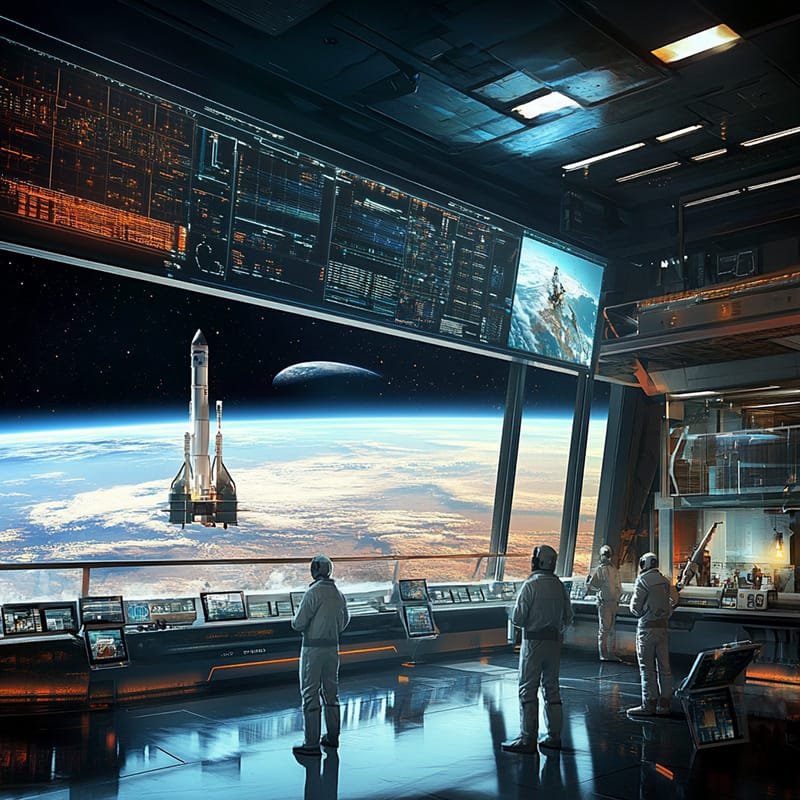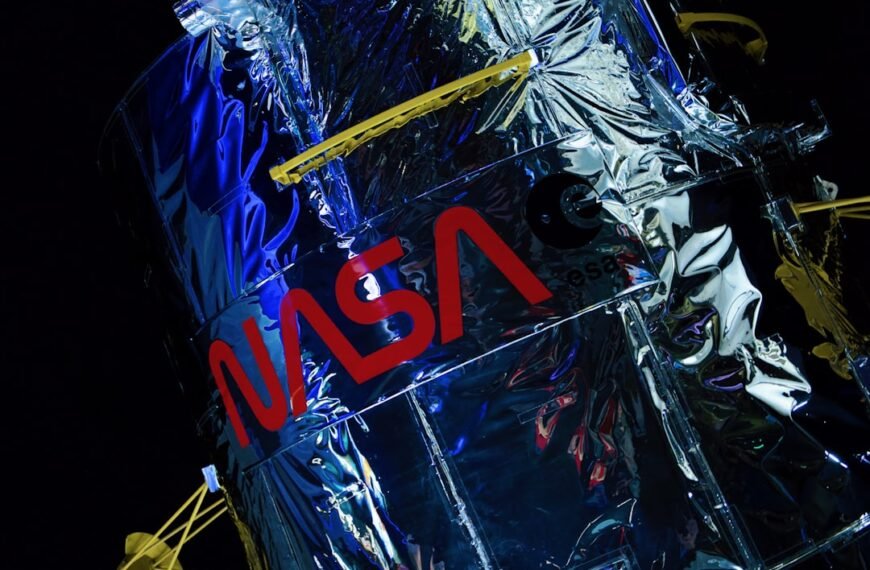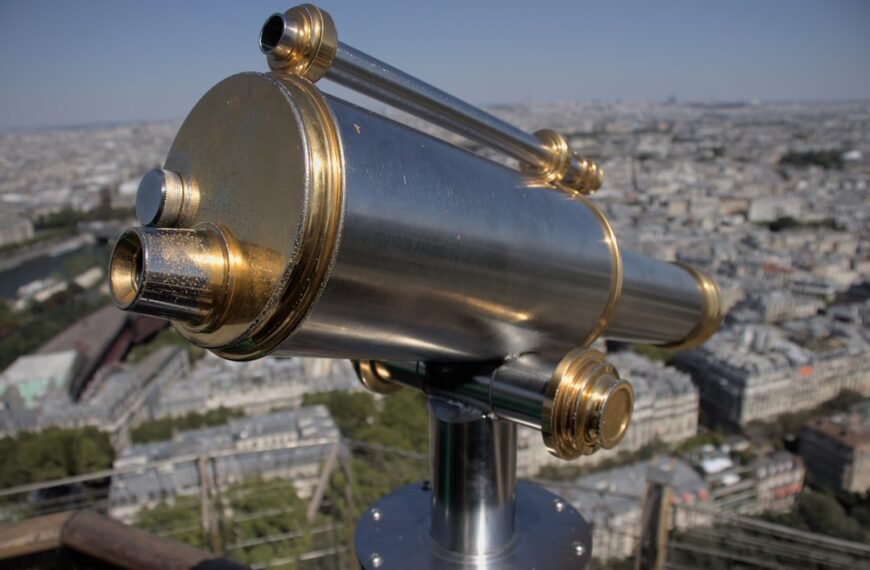Explore if space exploration is worth the cost! Discover its economic, scientific, and societal benefits. Click to learn more!
Takeaways 📝
- Investment Comparison: NASA’s proposed budget of $25.4 billion for 2025 is a small fraction compared to the U.S. defense budget of $850 billion, highlighting the relative affordability of space exploration.
- Job Creation: The space industry supports nearly 340,000 jobs in the U.S., with each NASA job creating about 18 additional jobs in the economy, demonstrating its significant impact on employment.
- Future Industries: The potential for resource mining from asteroids and the growth of space tourism suggest that space exploration could lead to new economic opportunities and industries in the future.
- Technological Spin-offs: Innovations from space missions have led to everyday technologies in healthcare and safety, showcasing real-world applications of space research.
- Inspiration and Unity: Space exploration inspires future generations in STEM fields and fosters international cooperation, emphasizing its cultural and societal importance beyond immediate financial considerations.
Space exploration has been a topic of fascination and debate for decades. The question that often arises is, Is space exploration worth the cost? In this blog post, we delve into the economic, scientific, and societal aspects of space exploration to answer this question comprehensively.
Economic Factors of Space Exploration
Budget and Cost Considerations
The investment in space exploration might seem immense, but when compared to other government expenditures, it’s relatively small. For instance, NASA’s budget for the fiscal year 2025 is proposed at $25.4 billion. This is a fraction of the U.S. defense budget ($850 billion) and healthcare spending ($1.339 trillion in FY 2022).
Economic Benefits and Job Creation
The space industry significantly impacts the economy and job market. Here’s how:
- Industry Growth: The global space industry is now valued at over $400 billion, thanks to government and private sector investments.
- Job Creation: NASA supports nearly 340,000 jobs across the United States, with these roles offering higher-than-average salaries.
- Multiplier Effect: For each full-time job at a NASA facility, about 18 additional jobs are created in the U.S. economy.
- Technological Commercialization: Space exploration has led to numerous technological advancements that have been commercialized for use in other sectors, generating substantial revenue.
Future Economic Potential
Space exploration holds tremendous potential for future economic benefits. These include:
- Resource Mining: Celestial bodies like asteroids contain valuable resources. The asteroid “16 Psyche,” for instance, is estimated to have gold worth approximately $10,000 quadrillion.
- Space Tourism: While still in its early stages, 55% of Americans expect space tourism to become commonplace in the next 50 years.
- New Industries: The challenges of space exploration drive innovation, potentially leading to the development of new industries and economic opportunities.
Scientific Advancements from Space Exploration

Scientific Discoveries
Space exploration has expanded our scientific understanding in multiple domains:
- Lunar and Planetary Exploration: Missions like Apollo have provided invaluable data about the Moon’s composition and geological history.
- Astrophysics: Space-based observatories like the Hubble Space Telescope have revolutionized our understanding of the universe.
- Solar System Studies: Missions to comets and asteroids have provided material dating back to the formation of the solar system.
Technological Advancements
Space exploration has led to technological innovations with wide-ranging applications:
- Everyday Technologies: Many everyday items, like cordless tools and memory foam, have their roots in space technology.
- Health and Safety Innovations: Technologies developed for space, like infrared ear thermometers and air purifiers, have found applications in healthcare and public safety.
- Communication and Navigation: GPS technology, originally developed for space missions, has become essential for global navigation and timing.
Societal Impacts of Space Exploration

Inspiration and Education
Space exploration impacts society profoundly:
- STEM Education: The pursuit of space exploration inspires future generations to engage in STEM fields.
- Cultural Impact: Space missions capture the public imagination and foster a sense of human achievement and unity.
International Cooperation
Space exploration fosters international collaboration, seen with projects like the International Space Station. This cooperation can lead to peaceful relations and shared technological advancements.
Environmental Benefits
Space technology contributes to environmental monitoring and management:
- Earth Observation: Satellites provide crucial data for weather forecasting, climate monitoring, and disaster management.
- Sustainable Technologies: Innovations in space technology, such as vertical farming techniques, contribute to sustainable practices on Earth.
Public Opinion on Space Exploration
Public opinion on space exploration is mixed:
- Support for Leadership: About seven-in-ten Americans consider it essential for the U.S. to maintain a leadership role in space exploration.
- NASA’s Role: 65% of U.S. adults consider it essential for NASA to remain involved in space exploration.
- Priorities: The public prioritizes NASA’s efforts in monitoring asteroids and Earth’s climate system over human missions to the moon or Mars.
- Cost vs. Benefits Debate: There’s an ongoing debate about the cost of space exploration versus its benefits, with some arguing that funds could be better spent on pressing social issues on Earth.
Is Space Exploration Worth the Cost?
Evaluating whether space exploration is worth the cost requires balancing multiple factors. The economic benefits, including job creation, technological spin-offs, and potential future industries, suggest a positive return on investment. The scientific discoveries and technological advancements resulting from space exploration have far-reaching impacts across various sectors, contributing to human knowledge and practical applications on Earth.Societally, space exploration inspires future generations, fosters international cooperation, and contributes to addressing global challenges like climate change.While the costs are significant, they represent a small fraction of overall government spending, especially when compared to areas like defense and healthcare.Public opinion, while generally supportive, reflects a nuanced view of priorities and concerns about cost-effectiveness. However, the long-term potential benefits, both realized and anticipated, make a compelling case for continued investment in space exploration.In conclusion, while the debate continues, the evidence suggests that space exploration, when balanced with other national priorities, is indeed worth the cost. Its contributions to scientific knowledge, technological innovation, economic growth, and societal progress provide substantial returns on the investment, positioning it as a valuable endeavor for humanity’s future.































